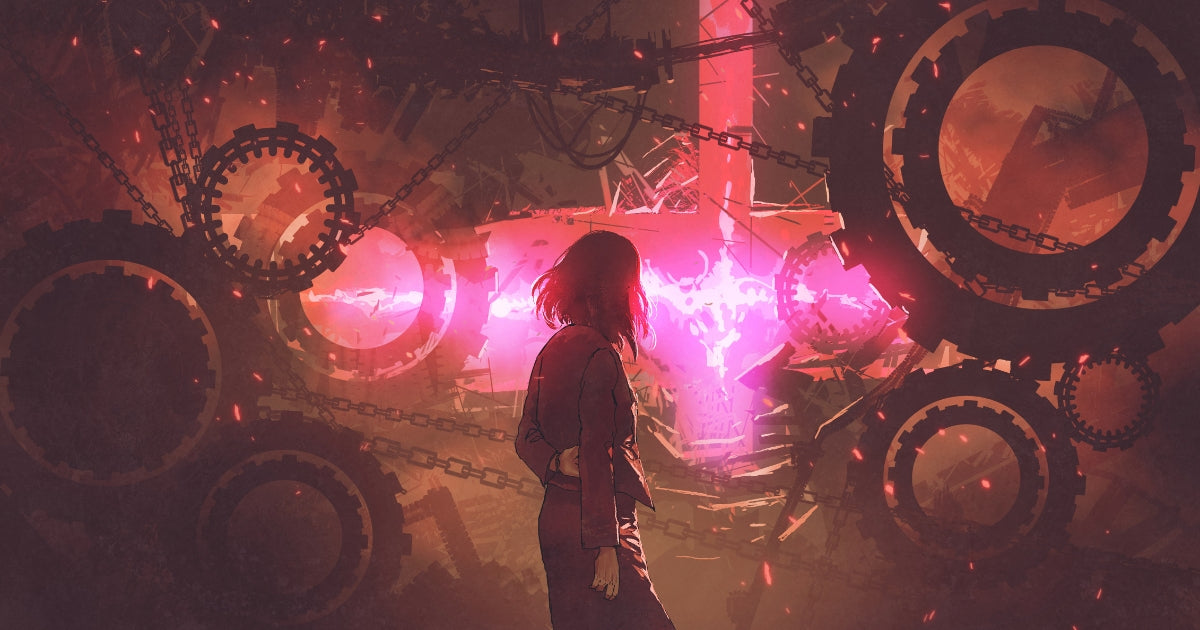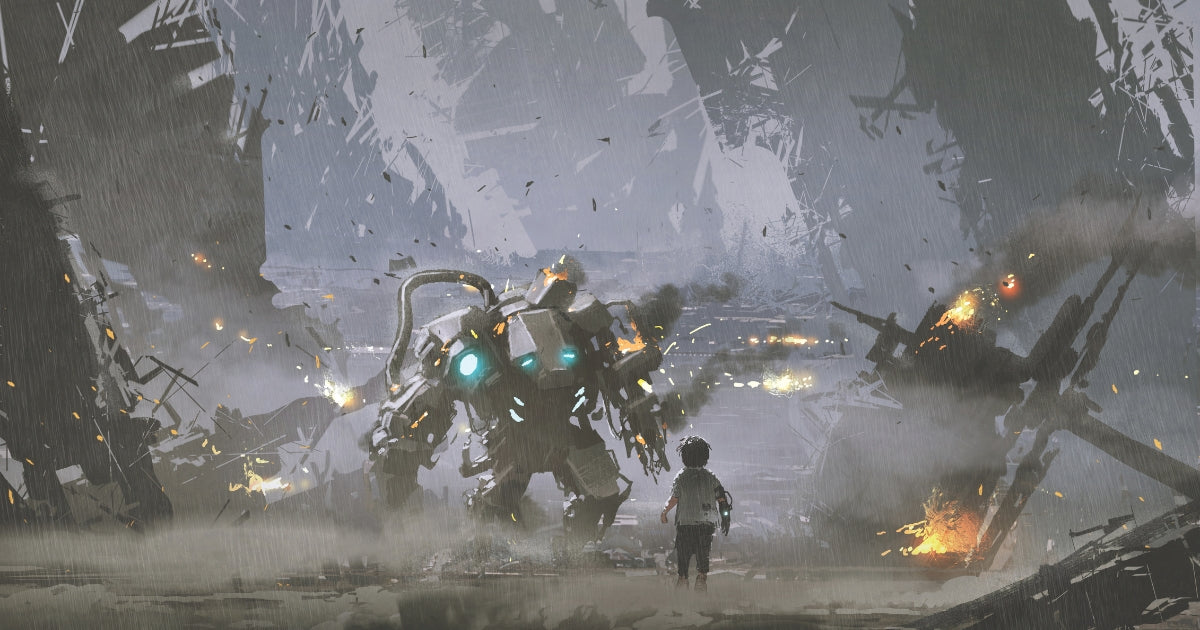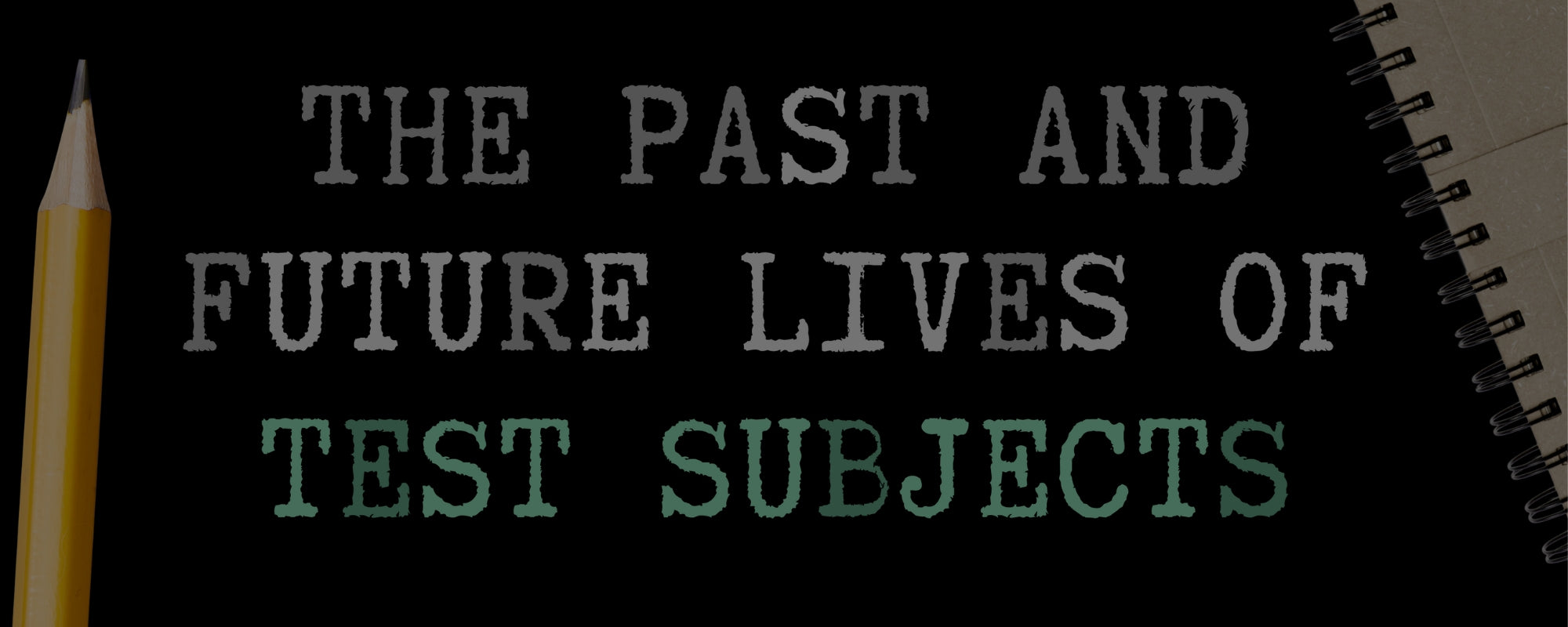
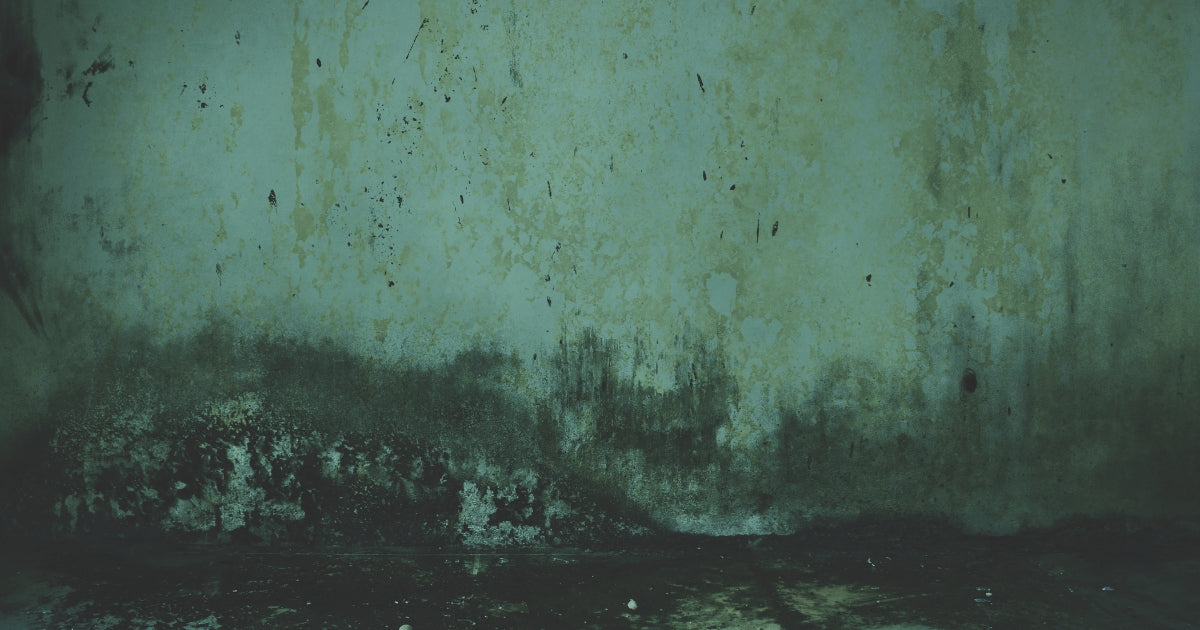
The Past and Future Lives of Test Subjects
By Octavia Cade
Audio Narration by Aaron Sinn
Some people call it murder. I’d call it arguable.
Either way, it’s less confusing to focus on the science. And they’re volunteers, after all—although how much choice there really is between the electric chair and the examination of evolution, courtesy of the current experimental nature of palaeontology, is a question for ethicists and others.
“Don’t kid yourself.” Madeline stares at me from under fringe, all freckles. Her hands are cuffed to the table, her fingernails bitten down to the quick. “You’re part of it too. There’s no choice here.”
“Your choice was made before you hacked someone to death with an ax,” I say. “Though credit where it’s due, you did a very thorough job. That kind of skill could help you in obtaining protein.”
“Except I won’t remember being good at butchery, will I? So, no help at all.”
“Maybe you’ll get good at it again.”
Small cruelty on my part. But then, she won’t remember that either.
1958
Tuskegee Study of Untreated Syphilis in the Negro Male. Diary excerpt.
I’ve kept a journal all my life. Still do, but this one’s secondary, kept not in the bedside drawer but locked away in the study where no one will stumble across it.
Some work I want to remember. God knows those we’re leaving to disease and rot won’t recollect it. They simply lack the capacity. You can’t remember what you were never told. Still, you can’t say I ever forced anyone.
They were all volunteers.
Habitable planets came fast after we found the first. Faster still once we’d learned how to reach them in less than lifetimes. Not a single planet inhabited by any sort of life we’d call intelligent, but there are those that are analogous to the past. Planets in their own Cretaceous period, their own Cambrian and Jurassic. Their own Pliocene. Their own Pleistocene. And orbiting each of them, a research station.
There’s been work done in the past: groups of scientists coming together to live as prehistoric humans for a season. This kind of experimental archaeology allows for the practical testing of theory, as well as the popular presentation of science. It had been what first interested me in past lives, if only recent ones—a trip to the recreation of an iron age village where anthropologists spent their summer in roundhouses—but back on Earth, those were short-term placements, performed by well-trained volunteers who had at least a theoretical knowledge of their profession. It’s one thing to reverse-engineer a roundhouse, but quite another to develop the technology without extragenetic influence.
How much, we wonder, has observation of the past changed the experience of living it?
1958
I wonder, sometimes, what will happen if this gets out. Maybe, down the road a way, people will be grateful enough to look past what we’ve done. If what we learn from these test subjects can help to save humans in the future, then surely the sacrifice is worth it.
I wouldn’t say it has been easy. Sometimes I look back at the kid I was, all bright-eyed and idealistic, but we all have to sacrifice our squeamishness eventually. I trust that one day, people will recognize that sacrifice and be grateful for it.
It’s extraordinary, then, that I’m spending the days leading up to Madeline’s past life teaching her the basics of flint knapping and making fire. No one on this planet has yet to manage either, and I’ve taught them all.
“Wouldn’t this taint the experiment if I did remember?” she says.
There’s no denying it. I’d likely lose my place and my accreditation. My sole defense is a false one, though I’ve built up documentation around it, on the off chance. I know exactly what I’d say, what would be most effective to hear.
“There’s no chance of the subject retaining learned skills. The procedure to remove existing short- and long-term memories is both irreversible and thorough. The attempt to teach potential survival strategies is not, in fact, an experiment performed on the subject. It is an experiment on the experimenter, if you will, with assistance from the subject.”
Madeline is cross-legged on the floor in front of me, quartzite hammerstone laid aside as she examines the ruined edges of badly flaked flint. There are small cuts on her fingers, and I can see bruises forming where she’s hit too hard, unable to achieve the correct angle.
“We can assume that the scientists who choose to become involved with this project had no moral objection to it, but disputes surrounding the perception of experimental subjects as the living dead have been well-documented. The term is inaccurate and hyperbolic; stemming from opposition to extraplanetary, palaeontological research of this kind, but adequate studies on how this opposition impacts the associated scientists have yet to be performed.”
She sees me watching and picks up the hammerstone again. I can’t help but think I’m being humored. Strange how they all do this. I’d like to think it was the potential for hope—the possibility that they’d retain something from the experience, some hint of muscle memory, but there’s always that same look. I wouldn’t call it pity—it’s more of a shared acknowledgment of the futility of practice, the briefest bond of black humor. A slight contempt, perhaps, that I’d made them try. The suspicion that this is just another small sadism merely dressed up as hope. After all, incarceration is suspicion on all sides.
“Informal communications in the field have given rise to concerns about the possibility of interference in the experimental design. Such interference—specifically, the communication of potentially valuable skills—is not universal. It may not even be widespread. It is certainly ineffectual, taking place before the removal of the subject’s memories; a hypothesis that is seemingly supported by the failure of these skills to manifest, thus far, at any of the experimental sites and/or eras. This indicates that the purpose of this potential interference is more closely related to the psychology of the experimenter than that of the subject, and further study is required.”
Which is a fancy way of saying we feel guilty and don’t like it. Not very guilty, but then again, we weren’t the ones who approved this study in the first place.
And Madeline is a murderer.
It’s always handy to be able to shift the blame.
1958
It helps that the subjects are illiterate. It’s easier to lie to illiterates. They can’t read the papers, can’t find out about penicillin—at least not from newsprint.
Imagine, in this day and age, not being able to read! There’s a satellite going up soon, Explorer 1, to match the Sputniks. It’s the age of opportunity, alright, if you’re only willing to take it.
Illiteracy in the space age. It’s a disgrace.
Sometimes I think education is truly what separates us from the other primates.
“Will I be alone,” asks Madeline, “or in a group?”
Hominins are social creatures. Together they form communities and there’s value in seeing how they interact. Although, under the circumstances, the total lack of language can create complications. The opportunity to see communication methods develop, to observe the origins of gestures and vocalizations is a rare one. But it’s true that not all relationships are positive. Conflict has ended group experiments early on some planets, and in any case, we don’t have enough of a female population to facilitate reproduction. Our sample pool is necessarily limited: statistically, murderers are more likely to be men.
The only chance of a viable population is a group that includes women. That, or a greater number of willing murderers as replacement population. Unfortunately, we can’t really do anything about that on this end. But observing a population with no contraception, no healthcare, with the subsequent massive increase in infant and maternal mortality—not to mention the strong possibility of sexual assault—none of us want to watch that.
More importantly, none of us think funding will survive the publication of that.
It’s the problem of observation again—not just how the act of watching changes the object, but how that same act changes the observers. Some things we no longer profess the stomach for.
“You’d last longer on your own,” I say, and it’s an answer that isn’t one.
“Who are you to say I would?” says Madeline. “Or that I can’t have babies?”
“You wouldn’t have had them anyway,” I say. Execution would have removed that possibility, and even in a society where capital punishment could be commuted to life in prison, it wouldn’t be an option for her. “Let’s face it, you’re not exactly mother material.” Ax work might be a useful skill to teach to kids in the Pleistocene, but it tends to be frowned upon in a city office. Plus, the inability to tell the difference doesn’t say much for any potential child-raising ability. “Sterilization is a more appropriate option.”
“Hardly makes for a realistic simulation, though, does it?” she says. “With life so altered already.”
The removal of language, the removal of all learned behavior—our ancestors were never so handicapped. They had generations of culture passed down; what vegetation was safe to eat, what predators to avoid. Methods of finding shelter, of basic medicine, of art, concept, and imagination.
We’re creating facsimiles of our early ancestors. Grossly inaccurate ones at that. A little less inaccurate, perhaps, than the alternative of sending prisoners down as they are—or maybe it’s just inaccurate in a different way. How big is the experimental difference between creatures raised in culture and communication, and those who have no common verbal language, no common body language, and are only beginning to develop them? Just how quickly can an individual learn when their life is at stake?
It’s not as if the environment is accurate either. The planet below is Pliocene-equivalent, but of course the other organisms aren’t the same. The vegetation is compatible enough with our physiology, the animals too have their analogues, but the study site Madeline will be going to is an island with a tropical climate. Water sources are easily accessible. Consumable vegetation, a number of edible arthropods, and various small mammals all provide ample access to food.
Test subjects are a limited resource. We want them to survive. We have some cause for optimism. Resources are sufficient to sustain a far greater population than we have. Furthermore, the island is absent of the larger predators. There are some in the ocean, but Madeline’s not about to be ripped apart by a pack of Pachycrocuta types. Which is a shame, in its way. Oh, not that I want the bloodshed—too much carnivorism of that sort and the study itself wouldn’t survive. It’s just that I’ve always admired the hyenas.
They have a bad reputation, I know, which seems unfair when you compare them to the rest of the predators. Perhaps it’s the laughter—the way they seem to take such satisfaction in what they do. But there’s never been a population so good at opportunism, at scavenging, at picking off the weakest of the herd, the ones least likely to be missed.
They even work together to do it. It’s a shame they went extinct in the Americas, but other species will always fill the gap.
“I think you love your job a little too much,” says Madeline, her freckled face sour. I smile at her with all my teeth because it’s true. I do. I’m not even sorry for taking people like her out of the general population—people who can’t control themselves or their baser instincts. Sometimes what’s best for everyone is to thin the herd.
1958
Congenital syphilis: The subjects infect their women and now the infants have it. I confess, this development has given me pause. Suffer the little children and so on, but ultimately, I’m convinced now, more than ever,that we need to keep Tuskegee quiet. This research has come at such a terrible cost. If it’s made public, the experiment ends and the suffering of those little babies was for nothing. We need to learn what we can, while we can. I’m hopeful the results will prove the price.
Sharecroppers shouldn’t be having so many kids anyway.
Sometimes I think we should have sterilized them.
“Why did you do it?” Some few dozen murderers have come through our laboratory. Madeline is the first one I’ve found surprising—although palaeontology has shown that most of my assumptions about the psychology of others can be attributed to blind guesswork and prejudice rather than objective assessment. Still, it’s not hard to see an individual who fits the profile a little less than others. There’s a significant amount of emotional control with Madeline, and our interviews have felt more like mutual investigation than anything else. As if, perhaps, she thinks of me with interest. A minor, detached sort of interest, admittedly, but it’s there nonetheless.
It’s the kind of distant objectivity that doesn’t mesh well with ax murder.
“Life is full of endless possibility,” she said. “But it narrows down quicker than you think. Eventually, boredom kicks in and then it’s anything for a thrill.
“I held off as long as I could.”
It could be argued that such a person should not be given hammerstones—that the risk isn’t worth the utter lack of reward.
Perhaps that’s why I do it.
I’ve always wondered if the murderers they send me still cling on to hope. That somewhere in their mind, a tiny part of them thinks they’ll remember.
Sometimes people deserve the hope you give them.
1958
It’s not as if we gave them nothing. They got square meals and free medical care, better than they could have afforded on their own. Free burial insurance, even! The recompense for a few medical tests is more than they’re getting from all their hours of work on the land.
Everyone likes to believe that they’re more valuable than they are. But really, if they’d thought about it, they’d have seen it was a big reward for such a little contribution. If a body can’t figure out simple economics…
We practically told them flat out.
“You probably think this is justice,” she says. “That the punishment’s deserved. And it is—I admit it! A life for a life only seems fair. It’s the prevention argument that irks me. Yes, I killed someone. I wanted to know what it was like. Now I know, and there’s no incentive to do it again. All the potential for wonder is gone out of it.”
“I don’t believe you’re telling the truth,” I say. She shrugs, as if my disbelief were irrelevant.
“I did tell you, possibility narrows fast,” she says. “And now I get this—a winter hibernation of the spirit.”
“Everything that hibernates wakes up eventually,” I tell her.
We both know this is a lie.
“I think you find it entertaining to tell such fibs,” she says.
When oversight raises a monitoring flag, it appears I’m not the only one who finds deception entertaining.
1958
You think at school, “Well, I’m going to be a doctor”, and it narrows down and narrows down until you find yourself specializing—first in venereal disease, and then in the secrecy that comes with it.
It’s not that I enjoy the prospect of torment, but syphilis is such an interesting problem. Self-inflicted, too, for the most part, by people who know better and go ahead anyway. A mix of biology, psychology, and arrogance—the old Adam.
I’d be lying if I said I didn’t find it exciting. The conspiracy, the power, the thrill of the search. But that’s not why I do it. I’ve seen what syphilis can do to a person, and we are our brother’s keepers. No brother of mine is going to suffer like that.
We’re so close to licking this thing.
She’s not Madeline at all. Her name is Marcheline. Close enough that she could cover if necessary, pretend mishearing and mistakes.
Strange to forge an identity just to get rid of it, but she’s not the first. “Perhaps you should make your criteria less stringent, then,” she says. “Why is it that only murderers get the chance of a past life?”
She’s sane enough, as all the tests go. No sign of mental illness, no catalytic factor. “Would it be easier to understand with a dead kid behind me?” she asks. “Should my family have died in a fire? Or would a bad break-up have sufficed?” She’s sorry to disappoint, but she’s never had a child. Her family is fine, if somewhat distant, and the last boyfriend—the only one that’s ever mattered for more than a month—is a good friend, still. They meet up every other month for lunch; the relationship is warm and entirely lacking in resentment. They’re better off apart and both of them know it.
“I have the right to euthanasia if I want it,” she says.
“You’re not sick.”
“The principle remains: My life is mine to do with as I wish. I wish this.”
“Your life may belong to you, but this study doesn’t,” I say. “We have funding to consider. It’s an expensive project. Any ethics violations will have us shut down.” Which she already knows. If she didn’t, she wouldn’t have tried to sneak her way in under the cover of a nonexistent murder. It’s the reason for the false identity, apparently. Marcheline is known to Recruitment and Personnel and has been turned away with less and less politeness.
“What ethics would you be violating? I’m here of my own free will. I understand the consequences, I’m of sound mind. Why shouldn’t I turn cave woman if I want to?” It’s a flippant way to end the argument, and not one supported by academia. The study site here is all savanna, and there are precious few caves about.
“You’re asking me to end your life,” I said.
“This isn’t death. You wouldn’t actually be killing me—this is the alternative to execution, remember?”
It’s a fine distinction that we’re all too willing to see applied to the criminal element of society. For all the talk of human rights, of rehabilitation and prison oversight, the standards that are actually applied are just a little bit lower. “And you know it, too, don’t you?” she says, with a smile that’s all slaughter. “Nice to pretend you’re above it all, that it’s not just curiosity on your part—people dressed up as lab rats.”
“You do valuable work, I’m sure,” she says, and her smile becomes so rounded over, so suddenly smooth, that if I hadn’t seen what it could be, I’d have thought her sincere. “All I ask is that you let me be part of it.”
It is valuable work. We’ve learned so much.
1958
We’ve learned so much. So much. That’s what comforts me in the middle of the night. I wake sometimes and wonder, but Tuskegee’s been going for a generation now and no one has broken their silence. All the scientists involved, all the record-keepers and budget boys. There’s no reason it can’t keep on.
It’s not that we’re cruel. It’s just…we’re part of the future, aren’t we? And some losses are less devastating than others. Sometimes, I think learning which is which is the real spirit of science.
“You should be grateful,” says Marcheline. “Just think what a blind I could be.”
I have. It was one of the first things I considered, and the fact that it was resurrects questions I’m not sure I want to answer; compromises I’d long thought of as made and gone. The truth is, if she is what she claims to be, she’s publicity gold. No, we don’t just experiment on prisoners. Yes, we value consent. This is the greatest scientific experiment in human history, and anyone can take part.
Except it’s not going to happen. There are bleeding hearts enough for actual killers. No one’s going to let an innocent young woman sacrifice herself in such a way—especially not a pretty one. It doesn’t matter what her tests say. The press would find something—some obscure diagnosis, some traumatic event—to explain why she’s asking for this. It wouldn’t even have to be true. It would just have to sound true—news broadcasts plausible enough for society to swallow.
“I’m thinking more of a poison pill,” I say.
If she were a murderer this would be opportunity and justice, the chance for a new life—an old life. But she’s not a murderer, so it’s suicide and exploitation. Demography limits a lot of things unfairly—definitions most of all.
1958
I’m not a racist. I don’t say my best friend is a Negro, but they’re fine people, some of them, in their way. Fine people. And Tuskegee will help them, too. I’m afraid maybe people won’t understand that. That they’ll think we chose to experiment on Negros just to benefit ourselves. They won’t understand that if I were in it for the benefit, I could be working at a university, in the private sector. I could be working a job where I could talk about my work to everyone and get recognition for it. Instead, my contribution is made in silence, mostly, and with no credit, and having to hide my own damn diary. I’m not complaining because it’s the work that’s important, not me.
I’m just saying: Negros will profit from Tuskegee, too.
“I can’t help you.” There’s a temptation to tell her to go to the Ethics Board, but if Marcheline had considered that a viable option, she wouldn’t be here with fake blood on her hands, pretending to be someone she’s not.
“You could if you wanted to.”
It’s true. I could. If I were prepared to accept the consequences, I could give her the past life that she so inexplicably wants. And the truth is, if I could somehow avoid those consequences, it would be a real temptation. But I wouldn’t be able to get away with it, and temptation is a small and fragile thing when set against self-interest. “I do want to, but not enough.”
I need this job.
“It’s a foolish thing to give a hammerstone to a murderer,” she says, on her knees with her lesson materials scattered about her. “It gives us hope.”
If she used it on me, she’d qualify, alright. They’d take her in, wipe her memory, and send her down to a planet to illustrate the difference between animal and man—the borderlines of human development.
1958
In an ideal world, no one will ever know. In an ideal world, this is the compromise that safeguards our work.
“But you’re not a murderer, Marcheline,” I tell her. “No more than I am.”
1958
We’re not murderers. We’re not. I’m not. Murder is a savage and criminal thing.
It’s syphilis that’s killing them. It’s ignorance and lack of self-control. I don’t say that to blame. We are what we are.
You can’t fight what nature makes you. You can only make use of it.
Perhaps that’s what a past life is for her, and Pliocene—a way to remove the contemplation of future acts. A way to forget what she wants, and to have it all at once. Possibilities narrowing down and down until shameful desire cuts off every possible route but one, and the weaker members of the herd are set out before her.
It is a hard thing—to be so compelled to kill in a society that thinks itself evolved beyond such primitive acts. To know that compulsion for the throwback that it is, and to search for ways to force that predatory drive to adapt, to find something more than murder—or some way to excuse it.
When I smile at that spotted face, at the temptation and need and blood behind her eyes, I know she sees me as a mirror.
“Have you ever considered a career in the sciences?” I say.
Copyright © 2021 Octavia Cade
The Author
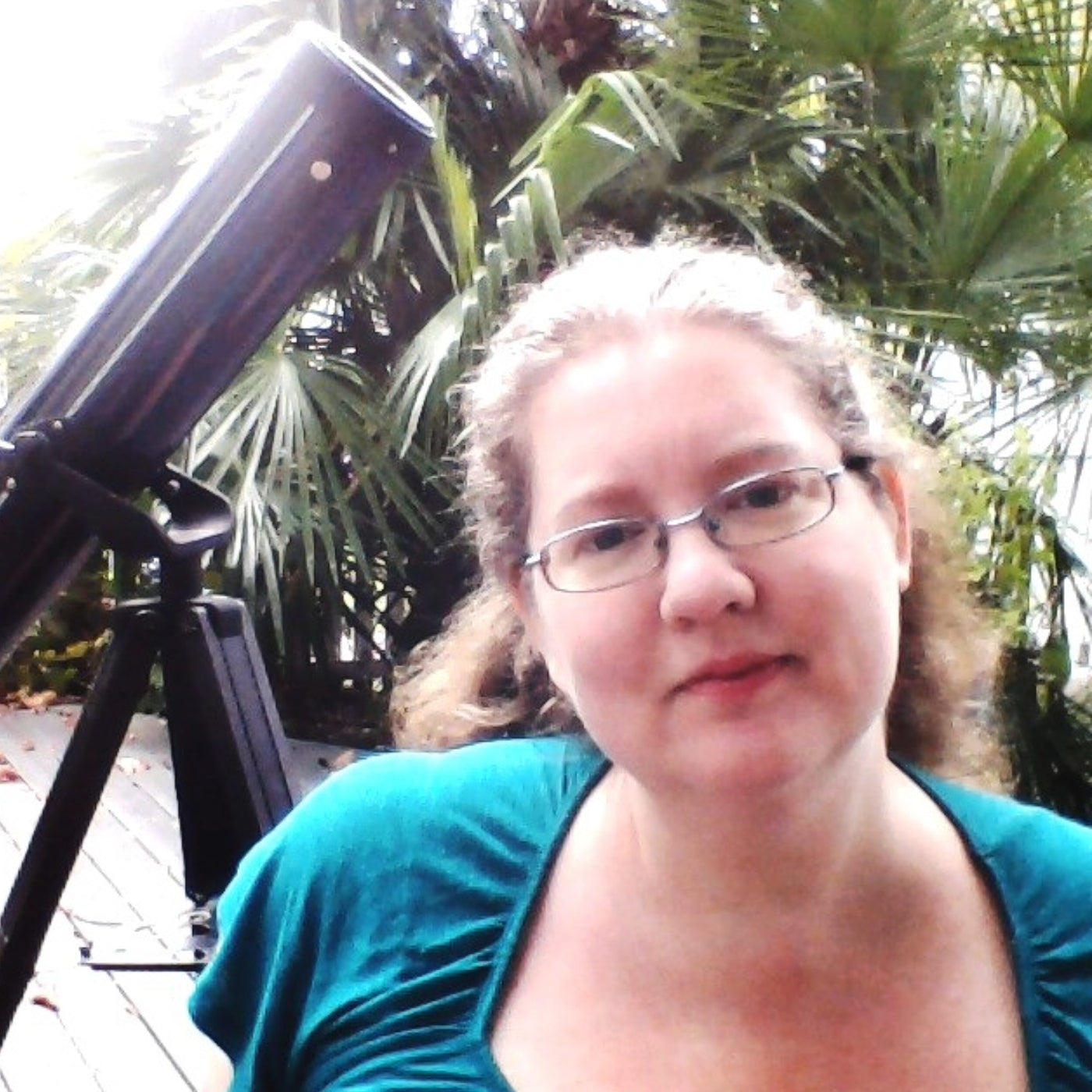
Octavia Cade
Continue reading

Subscribe to our newsletter
Promotions, new products, and sales. Directly to your inbox.


